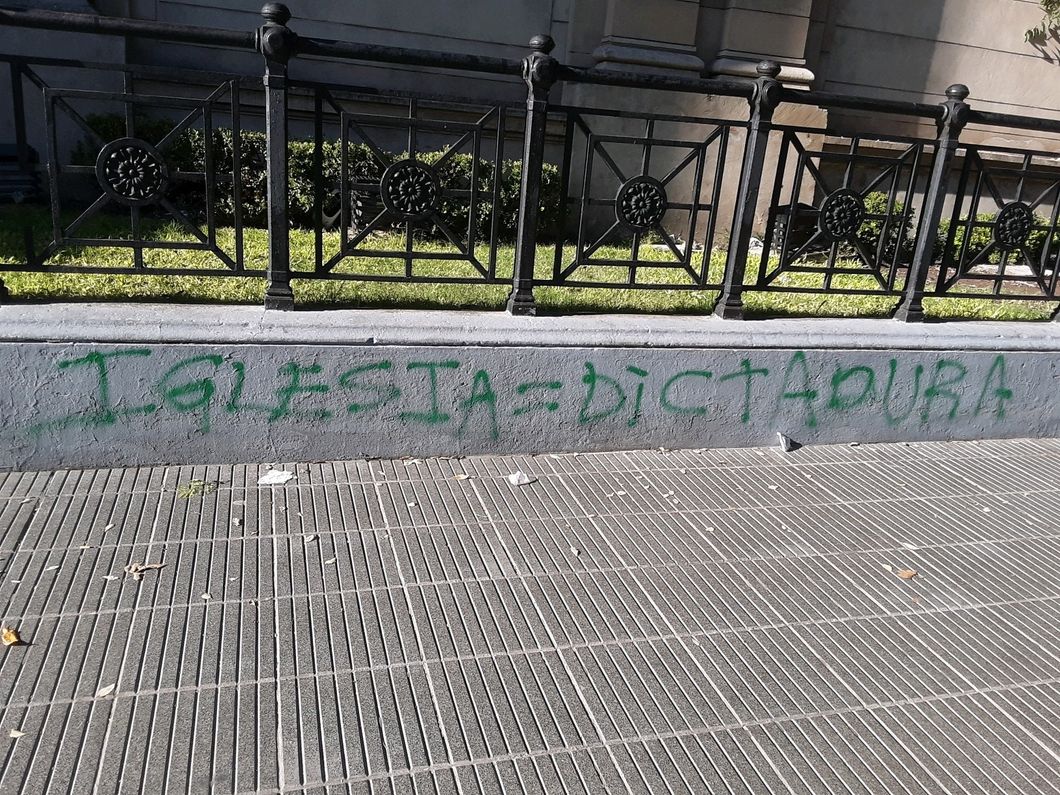You go to daily Mass and regularly run to Confession. Your ideal gift is a paperback spiritual classic. You can't walk by a statue of the Virgin Mary without feeling the urge to kneel down and take out your ever-handy rosary, and, if God doesn't call you to religious life, you look forward to having a big, faithful Catholic family. You support (or tolerate) President Trump largely because the prospect of a pro-choice administration horrifies you. In fact, every time something reminds you that our culture is full of fornication, contraception, normalized atheism, and, yes, abortion, you are filled with disgust verging on the desire to vomit.
You might ask if there's anything wrong with this mindset. After all, the Church needs saints' countercultural zeal.
She certainly does. But fanaticism is not sanctity. And you might disavow fanaticism, but so do all but the most fanatical fanatics.
In 1936, a civil war pitted the anticlerical Second Spanish Republic against conservative Catholic rebels. Three years later, the rebels succeeded in their crusade, and they established a government built upon strong Catholic values. They did nothing less than save the Spanish Church from the forces that wished to erase it.
They also erected a fascist dictatorship that lasted for almost four decades. The Republicans were indeed supported by the Soviet Union. But the Catholic Nationalists were aided by Nazi Germany.
Now, I'm not pretending that 2019 isn't vastly distinct from 1936. I'm also not saying that Spanish Catholics back then were in a situation identical to that of today's Catholics in the U.S.
What I am saying is that the crusading mentality of Spanish Catholics 80 years ago is a perpetual temptation to Catholics everywhere upset by the world around them. The Catholic Nationalists may have viewed themselves as God's avenging angels. But the world views them as repugnant allies of tyranny. I do not intend to judge their actions. If I had lived in that time and place, I do not think I could, in good conscience, have supported the Second Republic. The moral stain of choosing fascism as an alternative to secular liberalism is not, however, an appropriate position of the Church of God. Fascism worships the nation-state; the Church worships Christ. The two allegiances are mutually exclusive. If the Church were to align herself with leftist politics, she would surely be "playing the harlot", as Spanish Catholics in 1936 were absolutely aware. But she also does so whenever she makes herself the vassal of any secular ideology, no matter how amenable to the Faith it might seem. There were many martyrs murdered by Republicans during Spain's civil war. But there were also martyrs of the Catholic nationalist dictatorship established in Argentina four decades later. The Church, Christ's spotless Bride, must dedicate herself solely to Christ; on the institutional level, this can be difficult in the fallen world we inhabit. If we do not allow Christ to purify our view of the world around us, we will end up believing, not in the Church, but in a revolting caricature of her, and we will harm others by foisting this caricature onto them.
Why am I bringing up the Spanish Civil War now? Catholic social teaching, after all, has been greatly enriched since then. We have grown in our idea of the Church's relationship with secular society. I don't think I'm exaggerating, though, when I say that today's worldwide situation is singularly stressful and ripe for desperate situations. I do not want my fellow young Catholics to slack in their zeal for sanctity; I do not want the Church to become a cheap imitation of Anglicanism, in which aesthetic splendor and an amenable atmosphere try to compensate for disunity and moral decline. There may come a time when we will have to make hard decisions to defend the Truth. But we need to tame bellicose instincts with the mildness of God's love or risk responding to evil with evil. We need to be the kind of people who can prevent Catholic tyrannies, not the people who make them possible.
Yes, the World is bound to reject the Church, but it is not without reason that the grandson of a Spanish Republican might avoid churches today because he sees priests as having blood on their hands; it is not without reason that many gay Catholics likely abstain from Mass because the congregants therein might look at them the way Jonathan Edwards's God looked at a spider. It is an abominable thing in God's sight to mistake hatred for our sins as hatred for Him.
For God's sweet sake, let us not become today's Francoists in our fight to oppose today's Soviets. Please.


















